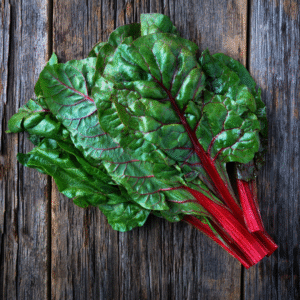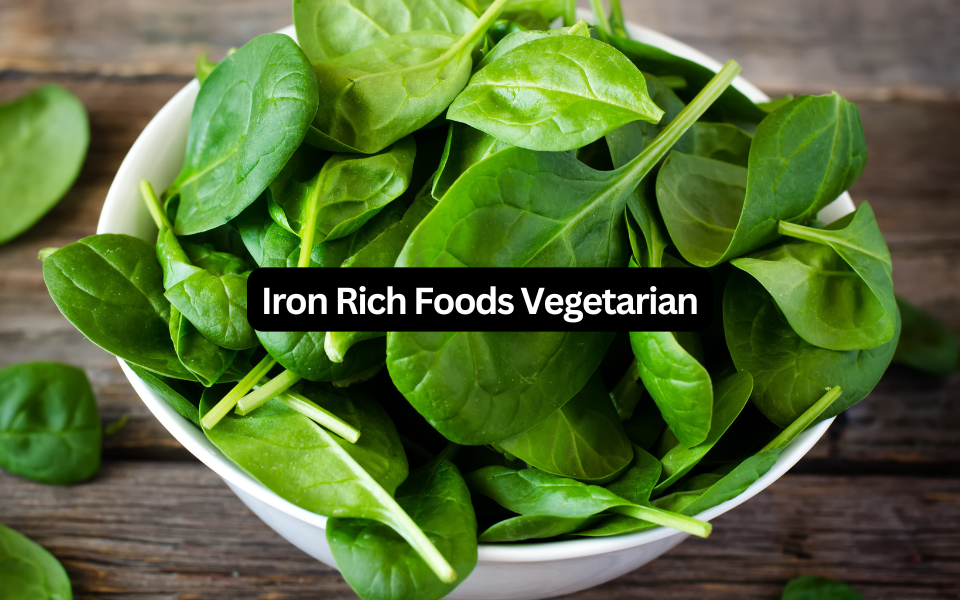Iron is a vital trace mineral that plays a crucial role in making healthy red blood cells and sustaining your energy levels. For vegetarians, maintaining adequate iron levels may seem challenging, as the most readily absorbed form of iron, heme iron, is found in meat, fish, and poultry. However, with a well-planned diet that includes a variety of plant-based foods rich in iron, vegetarians can easily meet their daily requirements.
Understanding Iron and Its Types
Food contains two types of iron: heme iron and non-heme iron. Heme iron is present in meat, fish, and poultry and is absorbed by the body more readily, with an absorption rate of up to 30 percent. Eating meat generally boosts iron levels more effectively than consuming non-heme iron.
Non-heme iron is found in plant-based foods such as fruits, vegetables, and nuts. While the iron in these foods is not absorbed as completely (the absorption rate is between two and 10 percent), they are still an important part of a nutritious diet.
Top Iron-Rich Foods for Vegetarians
Vegetarians have a wide array of foods with iron to choose from. Kidney beans are an excellent source of iron. Other notable iron-rich foods for vegetarians include:
- Legumes:
- Beans (kidney, garbanzo, or white, canned),
- Lentils,
- Dried peas,
- Soybeans and natto (fermented soybeans)
- Grains:
- Whole grains (brown rice, pasta, and wholemeal bread),
- Iron-fortified cereals,
- Oats, quinoa, spelt, and amaranth
- Nuts and Seeds:
- Walnuts, almonds, cashews,
- Pumpkin seeds, sesame seeds, flaxseeds, chia seeds,
- Tahini (sesame seed paste)
- Dried Fruits:
- Apricots, prunes, raisins, dates, and figs,
- Molasses (black treacle)
- Dark Chocolate:
- High cocoa content chocolate contains a notable amount of iron
Research suggests vegetarians are no more likely to have iron-deficiency anemia than non-vegetarians if they consume a diet rich in these iron-enriched vegetarian foods.

Iron-Rich Vegetables
Many vegetables high in iron can contribute to a vegetarian’s daily intake. While the non-heme iron in veggies with iron is not as easily absorbed as heme iron, consuming them cooked and with vitamin C-rich foods may help maximize absorption. Some key vegetables with the most iron include:
- Dark Green Leafy Vegetables:
- Spinach,
- Kale,
- Watercress,
- Beet greens,
- Dandelion greens,
- Collards, and
- Chard
- Other Vegetables:
- Sweet potatoes,
- Peas,
- Broccoli,
- String beans,
- Potatoes (especially with the skin),
- Oyster mushrooms,
- Brussels sprouts,
- White mushrooms,
- Palm hearts
Iron-Enriched and Fortified Foods
Iron enriched foods and fortified foods play a significant role in meeting iron requirements for vegetarians. These foods rich in iron have iron added to them during processing. Examples include:
- Fortified Breakfast Cereals: Many cold and hot cereals are fortified with iron and can be excellent sources
- Enriched Grains: White bread, enriched pasta, and enriched rice have iron added back after processing
- Soy Milk: Some soy milk is fortified with iron
Tips to Maximize Iron Absorption
To ensure you are getting enough iron from a vegetarian iron rich diet, consider these tips to maximize non-heme iron absorption.
- Consume Vitamin C-Rich Foods with Meals: Vitamin C helps convert non-heme iron into a more easily absorbed form.
- Avoid Coffee and Tea with Meals: Tannins found in tea and coffee can bind to iron and hinder its absorption.
- Be Mindful of Phytates: Phytates in wholegrains and legumes can affect iron absorption. Soaking, cooking, and sprouting grains, seeds, and pulses can help minimize phytates.
- Use a Cast Iron Pan: Cooking foods in a cast iron pan can increase their iron content.
- Limit Calcium Intake During Meals: Casein from milk and certain forms of calcium may interfere with iron absorption. If you take calcium supplements, consult your doctor or dietitian about the best timing.
Conclusion
Iron is essential for making red blood cells and maintaining energy. While heme iron from meat is better absorbed, vegetarians can meet their needs by incorporating a variety of iron rich foods vegetarian into daily meals. Some non-heme iron food sources include legumes, whole grains, nuts, seeds, dried fruits, dark chocolate, and iron-rich vegetables like spinach and broccoli. By focusing on strategies to maximize their iron intake vegetarians can ensure they meet their iron needs and enjoy a healthy, balanced diet.
References
Healthline: Iron Rich Plant Foods
American Red Cross: Iron Rich Foods
Hamilton Health Sciences: Vegetarian Sources Iron
BBC Good Food: Pump Iron
Sanitarium: Iron Rich Vegetarian Foods
